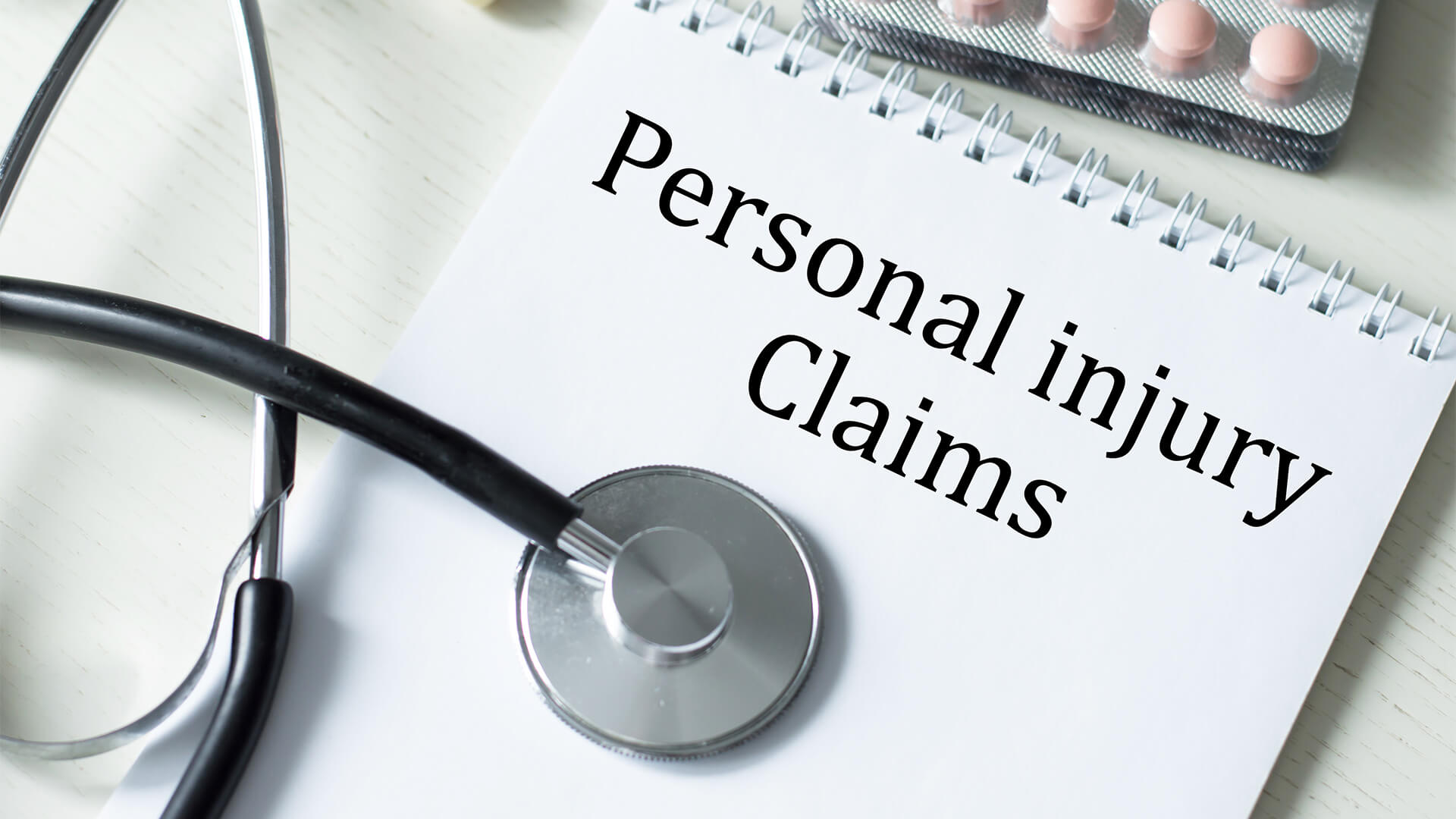- Resources
- Common Mistakes in Personal Injury Litigation
Common Mistakes in Personal Injury Litigation
September 6, 2024

Reconstructing a solid personal injury claim requires thorough groundwork, strategic planning, and efficient implementation. Nonetheless, even experienced lawyers can commit errors that may endanger their cases. Recognizing and evading common pitfalls is crucial for guaranteeing successful results. This blog will pinpoint common mistakes in personal injury cases and provide pointers on preventing them.
1. Neglecting to Probe the Case
A thorough, comprehensive probing is the foundation of any robust personal injury claim. Refrain from considering critical specifics or failing to amass adequate evidence to undermine your stance considerably.
a. Inadequate Evidence Accumulation: You must amass comprehensive proof, like medical documents, eyewitness testimonies, and photos of the mishap scene, to ensure your claim is valid. Confirm that you gather all applicable records and proof from the start.
b. Disregarding Witnesses: Neglecting to interrogate pivotal eyewitnesses can result in missing crucial testimonies that could bolster your client’s allegations. Identify and interrogate all possible witnesses promptly in the inquiry.
c. Ignoring Expert Opinions: Please consult experts to avoid loopholes in your claim. Enlist medical professionals, mishap reconstruction specialists, and other pertinent practitioners to offer perspectives and testimonies that enhance your arguments.
2. Insufficient Client Interaction
Effective connection with your client is crucial throughout the legal process. Substandard communication can lead to misconceptions, unfulfilled expectations, and a lack of confidence.
a. Failing to Control Anticipations: Not establishing practical expectations about the lawful process, potential results, and schedules can lead to client discontent. Clearly outline the process and possible scenarios for your client from the start.
b. Inadequate Regular Reports: Failing to keep your client updated on the progress of their case can result in irritation and worry. Provide consistent reports and promptly address any inquiries or concerns they may have.
c. Not Training the Client: If your client is unready for depositions, mediations, or trials, their performance can adversely affect the case. Ensure they comprehend what to anticipate and are well-prepared for each process phase.
3. Mishandling Medical Documents
Medical documentation is crucial in personal injury cases, as it validates the degree and effect of the injury. Mismanaging this documentation can weaken your case.
a. Inadequate Medical Records: Submitting incomplete medical records can raise questions about the validity of your client’s claims. Ensure that all relevant medical documentation is detailed and up-to-date.
b. Failing to Accentuate Essential Details: Not highlighting crucial details in medical records, such as the seriousness of the injury and the impact on your client’s daily life, can undermine your case. Collaborate with health professionals to emphasize these critical aspects.
c. Neglecting Future Medical Needs: To ensure adequate compensation for your customer, avoid recording and calculating future health needs and expenses. Include evaluations of future health costs and long-term care in your documentation.
4. Ineffectively Conducted Depositions
As covered in our prior blog on executing efficient depositions, this phase is crucial for gathering data and evaluating witness reliability. Errors in this stage can have substantial implications.
a. Insufficient Preparation: Entering a deposition without proper preparation can lead to missed chances to collect essential data. Prepare diligently by comprehending the case specifics, developing a questioning framework, and anticipating opposing counsel’s strategies.
b. Unproductive Inquiry: Posing suggestive questions or neglecting to follow up on crucial points can diminish the impact of a deposition. Utilize open-ended inquiries to draw out detailed responses and be ready to delve deeper into significant subjects.
c. Allowing Elusive Responses: Permitting a witness to provide elusive responses without pushing for clarity can undermine your testimony. Politely but assertively demand direct responses to ensure the data you acquire is lucid and beneficial.
5. Misjudging Compensations
Accurately assessing compensations is vital for securing fair recompense for your client. Errors in this area can lead to adequate agreements or favorable trial results.
a. Underestimating Intangible Compensations: Please consider intangible compensations, like pain and emotional distress, to avoid decreased recompense. Collaborate with specialists to precisely evaluate and present these compensations.
b. Overlooking Future Compensations: Remember to factor in future medical costs, lost earning potential, and long-term care requirements can significantly affect your client’s financial recovery. Incorporate these future expenses in your compensation calculations.
c. Insufficient Record-Keeping: Insufficient documentation to back up your compensation calculations can weaken your argument. Guarantee that all economic and intangible compensations are thoroughly documented and substantiated by evidence.
6. Inefficient Settlement Discussions
Settlement discussions are a crucial aspect of personal injury litigation. Mistakes in this realm may lead to disadvantageous settlements for your client.
a. Insufficient Planning: Engaging in discussions without a precise grasp of your client’s needs and the strong points of your case may diminish your negotiating stance. Fully prepare by examining all case specifics and proof.
b. Agreeing to meager offers: Accepting a low offer due to impatience or pressure might lead to insufficient reparation for your client. Be ready to negotiate firmly and warrant the reparation you seek.
c. Neglecting Conciliation: Disregarding conciliation as an option might cause drawn-out litigation and added expenses. Weigh conciliation as a feasible choice to achieve a mutually acceptable settlement.
7. Courtroom Errors
If your case proceeds to court, blunders in this stage could have substantial repercussions.
a. Inadequate Demonstration of Evidence: Ineffectively demonstrating evidence can weaken your case. Arrange your evidence explicitly and utilize visual aids, expert testimony, and persuasive arguments to bolster your case.
b. Unprepared Witnesses: Neglecting to brief witnesses for the court could result in contradictory or unconvincing testimonies. Conduct practice examinations and make sure witnesses grasp the importance of their testimonies.
c. Procedural Slip-ups: Failing to comply with court protocols and due dates might endanger your case. Familiarize yourself with all procedural prerequisites and ensure adherence throughout the trial.
In conclusion, preventing common mistakes in personal injury legal proceedings demands careful planning, efficient interaction, and strategic implementation. By recognizing these possible traps and taking proactive steps to tackle them, lawyers can increase their prospects of obtaining favorable customer results.
As emphasized in our earlier posts on constructing solid personal injury cases and conducting productive testimonies, comprehensive planning and focus on specifics are crucial to excelling in the intricacies of personal injury legal proceedings. By adhering to these top techniques, attorneys can maneuver through personal injury law hurdles and secure their clients’ fairness.
To Know More, Reach Out to: https://thealliedoutsourcing.com/contact/
All Categories
- Agile Legal Support (1)
- Case Law (88)
- Case Studies (6)
- Demand Letter (14)
- Deposition Summaries (11)
- Legal Outsourcing (3)
- Legal Research (72)
- Marketing (1)
- Medical Summaries (14)
- Others (4)
- Personal Injury (54)
- Virtual Assistant (59)
- Virtual Paralegal (2)
Related Blogs
Author
Maithili Salunkhe
Designation: Content Writer and Creator
4 Years extensive experience in content creation to offer specialized legal writing services. A deep understanding of legal principles and the ability to translate complex…Reviewer
Ruchi Bhakhri Sharma
Designation: CEO
25 years of combination of serving as a lawyer in India and paralegal support to US lawyers. Led a diverse team of legal professionals, project…Recent Blogs






